|
“Music can be like a box of mood pills that we can use to treat ourselves.” - peter gabriel Two songs have immensely helped me get through a challenging year: “Thank You for Hearing Me” (Sinead O’Connor) and “Live and Let Live” (Peter Gabriel). The fact that the former is a break-up song written about the latter seems strangely meaningful, too, especially since both songs explore the importance of communication, dealing with hurt feelings, and emerging stronger through forgiveness. The loss of Sinead O'Connor hit me hard. I found solace in "Thank You for Hearing Me," a song that resonated with me since I first heard it in the "Nothing Compares" documentary in March. Processing the end of a significant relationship, I reflect on this song. Despite feeling conflicted about the release of public records documenting my experience, I recognize that through it all, and perhaps because of it, I've emerged with a resilient heart still eager to learn from my struggles and to value connections. I admit that when I filed a complaint with the Virginia Department of Health Professions on September 4, 2020, I was both angry and hurt. I had asked a former therapist for an appointment and struggled with what to do when he wanted to meet in person during the COVID-19 epidemic. Over two days he offered me two appointments. I waited almost three weeks to respond because I was scared about what to do. I spent over an hour trying to compose a message maintaining my boundaries of meeting virtually while not offending him. It didn’t work. His response: “I’ll pass.” Everything that happened in the room over 1,096 sessions I was able to forgive or forget because whenever I was in dire need for support, I went back. When my appointment request was denied for the very first time since I started therapy in 2006, and in such a terse and dehumanizing way, I was gutted and hopeless. I knew it finally was the end of our “stormy” relationship, but it wasn’t on my terms. I was humiliated and ashamed. The only way I could claim some dignity from being “rejected” was to finally be honest with the Board of Psychology about what had happened to me in therapy and the behavior I had always known was a violation of its code of ethics and regulations. I had so much evidence documenting the claims I made in my initial written complaint and during the phone call interview with the investigator, hours of recorded sessions, voicemails, hundreds of pages of emails, and handwritten notes (both encounter and personal) from my former therapist. In retrospect, I realize I probably provided too much information because it slowed the entire process down as it all was carefully reviewed on multiple occasions. I’m so sorry. That’s all that I can think about right now. I want to apologize to everyone involved in this case especially the staff at VDHP. I now know I delayed the process by providing additional evidence in 2021 and 2022, but after a year, then two, had gone by without any resolution. I felt compelled to do something to try to alleviate my anxiety and fears that the case would be dismissed. I had written about my experience and had met with my psychiatrist and felt that it was important to include that information to demonstrate the toll this ordeal had taken on me. If someone would have told me in September 2020 that it would take over 3 years (1,175 days to be exact) for this to be resolved, would I have still filed the complaint? At one point in 2021 I was so desperate for closure I asked if I could withdraw my complaint and was informed that wasn’t possible. There was nothing I could do to stop it, or to speed it up, but everything I did seemed to slow it down. I know I sent a lot of emails to VDHP staff because I was frustrated by the system that didn’t allow anyone to provide information regarding an ongoing case. I know I made everyone’s job much more difficult when I asked questions or provided more documents to review. I’m so sorry. I really am. I know that I sent a “multitude of emails” and asked a lot of questions, but it was just a fraction of the incessant thoughts I had about this case. One way I deal with my anxiety is to do something. I regret that my desire to understand the process and get updates impeded their work. I wish I could personally apologize to everyone involved. When I filed the complaint I was angry. Now that the case is settled I have empathy and perspective. When the case went to an informal conference instead of getting settled with a consent order I took it personally. When the decision of the informal conference was appealed I took it very personally. I have a tendency to feel that when I’m hurt by something that someone does it must have been intentional and I must deserve to be in pain. I realize now that my feelings are probably not even on the radar for most people, especially someone acting to protect themselves. An appeal of the initial order from the informal conference was filed in April so he could retire in June without having to comply with the terms of the probation imposed on his license. Maybe he thought the whole thing would just go away. I knew it wouldn’t because I had asked the question over the years at various stages in the investigation and after the hearing, “What happens to this case if he retires?” So I know that he appealed to run out the clock because that was in his best interests. I totally get it. The fact that it also devastated me to not get closure when it was seemingly within grasp was probably inconsequential to him. I’m actually relieved that he never had to be inconvenienced with the requirements of the 3/6/23 Order. When I first read the terms and conditions of his indefinite probation of no less than 6 months, I felt validated, but then, almost immediately, I felt intense guilt because I questioned my motives and the legitimacy of my case. What was I really trying to achieve? Did I want to protect others or to punish him? I thought about Schadenfreude. “Your motives do not have to be PURE, even though you think so,” he emailed me after introducing me to that term in 2014. I don’t want any pleasure in any misfortune caused by the settlement of this case. Peter Gabriel’s song, “Live and Let Live” is my mantra right now: “When we forgive we can move on.” As soon as I start to blame myself for everything that happened during therapy and with the VDHP complaint, I need to remind myself the person I really need to forgive is ME. The truth is that I had forgiven my therapist for all the incidents referenced in the order except for the final one or I wouldn’t have kept returning again and again. That’s why I’m still so conflicted. I never wanted to take the action to formally complain because I still wanted the option to continue the therapeutic relationship if necessary. So if I filed the complaint only after he denied me a virtual appointment does that make my motives impure? I need to accept that I’ll never have the conversation I so desperately wanted before I filed the complaint. What was so wrong with me? What exactly did I say in my email that made him think I deserved such an unprofessional and flippant two-word response when I was in my most vulnerable state, especially after everything we’d been through together over so many years? I concealed so much about what happened to me in therapy from the people closest to me so I’m satisfied the outcome is a document that outlines findings of facts and conclusions of law. It’s long past the time for me to walk away without the burden of blaming myself for my transference and his countertransference. Thank you to the staff of the Virginia Department of Health Professions and the Virginia Board of Psychology for all the time spent investigating and litigating this case. I am eternally grateful that my complaint wasn’t dismissed and there was resolution. Thank you for hearing me.. Thanks also to The Women's Initiative for giving me the opportunity to share my story in “Challenge Into Change”. I’m so grateful that I received a copy of this book the same week that the final order was issued for the case described in “All This”. Thank you! Timeline of Public Documents
All my writings about Case 206870.
Peter Gabriel’s Live and Let Live
I have created a playlist of music from my favorite 80s movies: PG-50+. I’ve danced. I’ve cried. It’s pretty emotional. Be cautious. :) PEOPLE STRONGLY CAUTIONED Some material may be inappropriate for those 50+ taking a trip down memory lane. UPDATE: CASE CLOSED Voluntarily Surrender of Right to Renew License in Lieu of Disciplinary Action Timeline of Public Documents
To: Ani DiFranco From: Leah Connor Re: Thank you. Hi! I’m 50 years old and I haven’t written a fan letter to a musician since I was probably 15, but I need to personally reach out to say thank you, Ani. Long story short, I had a very toxic and damaging relationship with a psychologist from 2007-2020 and when I requested an appointment with him during the throes of COVID-19 he offered me dates, until I insisted on a tele-therapy appointment and then replied, “I’ll pass.” I reported him to the Department of Health Professionals 40 days later. There was an investigation, I provided evidence, and the report was submitted in December 2020. It’s now February 2022 without any resolution and it’s been unbearable to wait. I have an MFA in creative writing (2004), but I haven’t written much in the past 20 years. The only thing that helped me get through the roughest days lately was screaming out the chorus of “Untouchable Face.” That’s when I thought, wow I should remake this song especially for me. So I did and this is what I came up with so far: I know I’m not a saint I analyze and criticize with remorse, without restraint I know I’m not a fake Making enemies and allies Reliving my mistake I can’t take back my complaint So fuck you … and this unresolvable case Fuck you …for destroying a safe space And who am I? to dare call you out on your shit I said who am I? to win against a narcissist I sat on your couch Vocalizing my doubts Wondering what it would be like to trust Build intimacy without touch or lust Except fuck you … for denying my grace Fuck you …for cheating in this race And who am I? that I should want closure I said who am I? To lose my composure Early on, I dared to complain at sessions starting late the stolen minutes proved you didn’t care (enough) with so much at stake If I only knew how to wait when staying gets tough Fuck you …for the memories I can’t erase Fuck you …for making me feel out of place And who am I? To ask for boundaries and insist I said who am I? To deserve “I’ll pass” when you’re finished Couldn’t learn my lessons Couldn’t change my fate Couldn’t hide the stuff That finally made me break If only you kicked me out when I wanted to leave and needed a reprieve when I couldn’t believe I’d find water in a drought And who am I? If my complaint is dismissed I said who am I? If I don’t want to exist I said who am I? No more strength to resist Who am I? Tired from fighting like a darwinist Who am I? To blame myself for having caused all this I am going to write the verses, but that’s going to take a bit more time. Until then, I’ll be singing Fuck you on repeat. :)
Peacock has two of my favorite new shows: Girls5eva and We Are Lady Parts.. Both feature an ensemble of women in lead roles as well as some catchy tunes that’ll make you smile.
The power of music is both undeniable and scientifically proven. It can help us run faster, reduce pain, increase relaxation, and even save a life.
In 2017, hip hop artist Logic released his powerful song “1-800-273-8255” about suicidal ideation, recovery, and the power of hope. The title comes from the National Suicide Prevention Lifeline and research recently published in the British Medical Journal indicates the popularity of the song could have saved as many as 245 lives with an increase in call volume to the hotline. There’s actually a name for the persuasive power of mass media in helping those considering suicide to choose not to complete the final act: the Papageno effect. Hip hop has a long history of tackling the difficult topic of mental health. In 1982, Grandmaster Flash and The Furious Five released “The Message” which vividly describes social injustice and the toll on Black lives: “It’s like a jungle sometimes it makes me wonder how I keep from going under” “Don’t push me cause I’m close to the edge, I’m trying not to lose my head” Research has shown that the number of rap songs referencing mental health conditions doubled from 1998 to 2018. If more songs address the struggles with and treatment of mental disorders such as depression and PTSD, then it’s possible that the stigma and cultural resistance to seeking professional help will change over time. It’s vitally important for more musicians and artists to be honest about their own experiences with anxiety or suicidal thoughts so that we normalize discussions about mental illness and treatment. Unfortunately, multiple studies have shown an exponential growth in suicide rates and attempts amongst Black youth, especially girls and the age of those who are dying is getting even younger. One of the most startling statistics of racial disparities is that Black children under 13 die by suicide at almost twice the rate of white children under 13. We need to reduce the stigma attached to suffering from mental health conditions and the need to seek professional help with or without medication. Avoiding conversations about the realities of suicide doesn’t prevent it. We need the survivors of suicide (both those who have attempted and those who have lost a loved one due to mental illness) to speak up and help dispel the myths. We need to teach kids coping skills, where to go for help, and examples of overcoming a temporary mental condition or living productive lives with ongoing treatment of mental illness. Some people think suicide is selfish or that it’s a permanent solution to a temporary problem. Sadly, many of those who die by suicide have lifelong personality disorders or other chronic health conditions (mental or physical) that cannot be cured and require ongoing treatment and medication. It’s impossible to know whether or not someone’s life experiences that lead to suicidal thoughts are just temporary – they could include sexual abuse, poverty, PTSD, obesity, diabetes, or other struggles that are ongoing and possibly never-ending. Rather than judging those who are suffering, let’s support and listen to them. One tool I find that has helped me and my friends and relatives who suffer from mental illness is to find at least one song that makes you smile, gives you hope, or inspires you to dance and have that song ready for when you need to distract your mind from the negative thoughts - call it your Alive Note. Sometimes I’ll play just one song on repeat for hours if it makes me feel less alone or gets me moving. Exercise is another proven method for improving your physical and mental health so why not combine music with a walk or workout. Have a purpose for your playlists. I’ve organized songs to help pump me up or to calm me down, songs that help me laugh or make me cry … whatever I need to feel all the feelings. Some of my faves include “Ladies First” by Queen Latifah & Monie Love (to feel empowered) and “Just Look Up” by Ariana Grande & Kid Cudi (for a laugh!). My ALIVE notesHip Hop & Mental Health What are your power songs? Share your “Alive Notes” with us! |
@leahcville1/2 of @TwinsRun Categories
All
Archives
May 2024
|
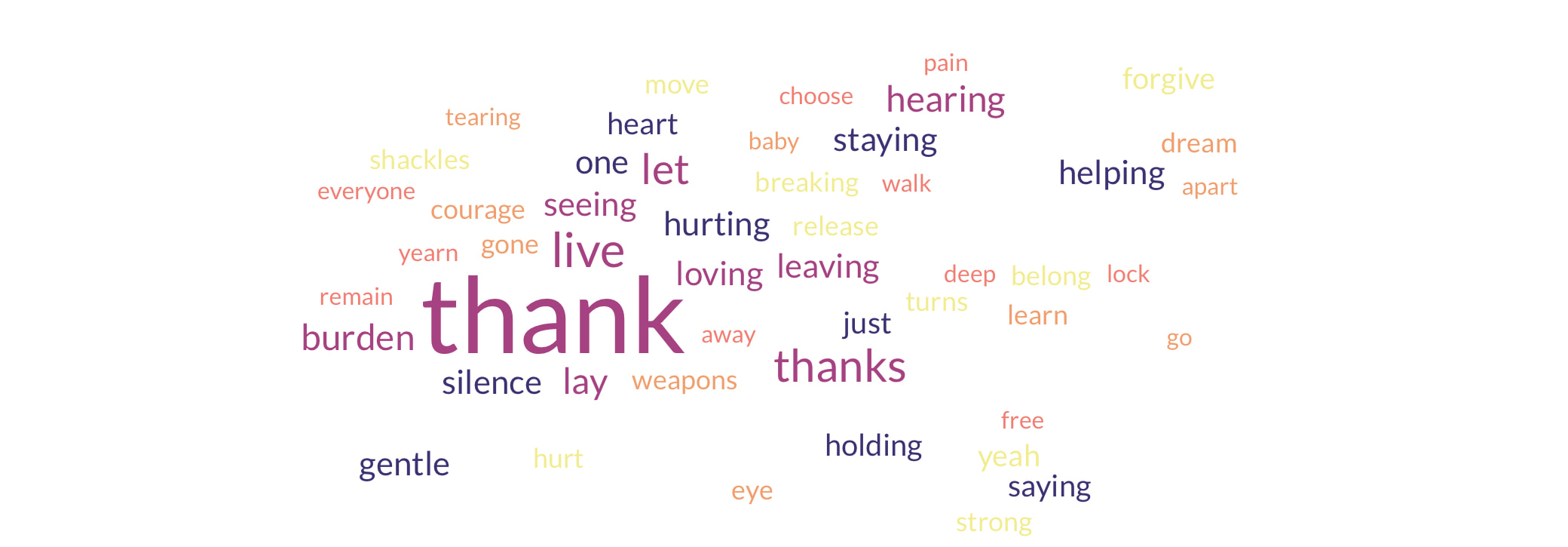
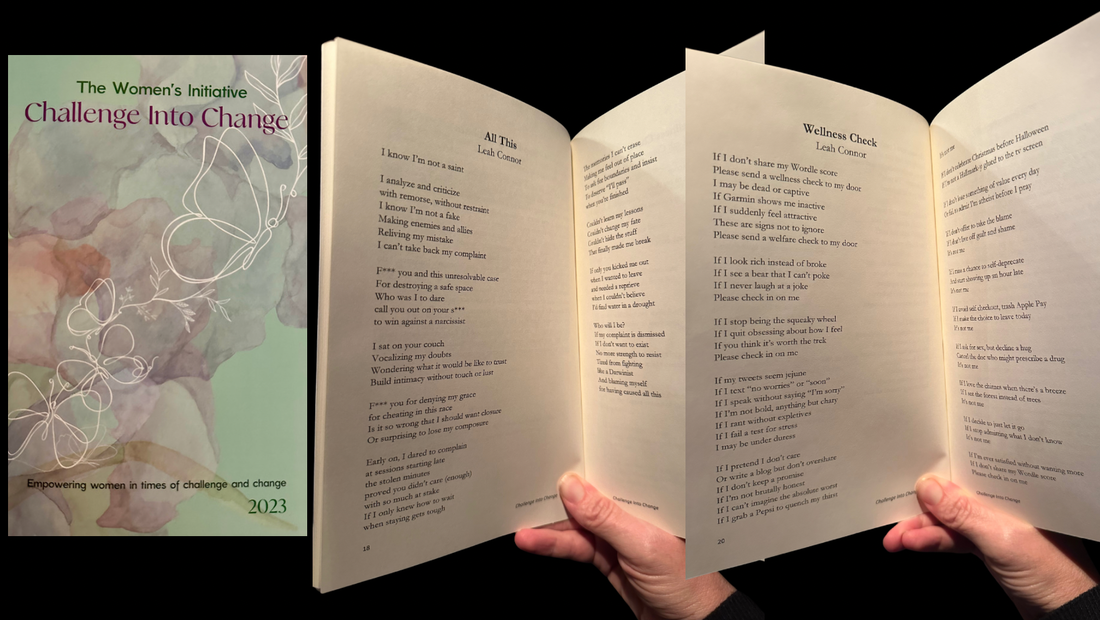
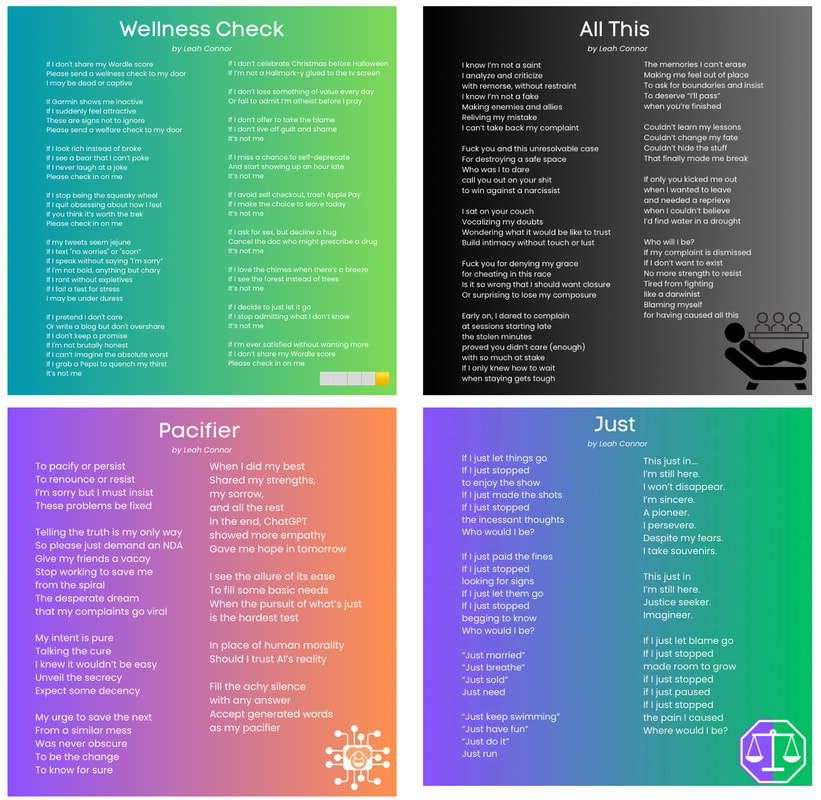
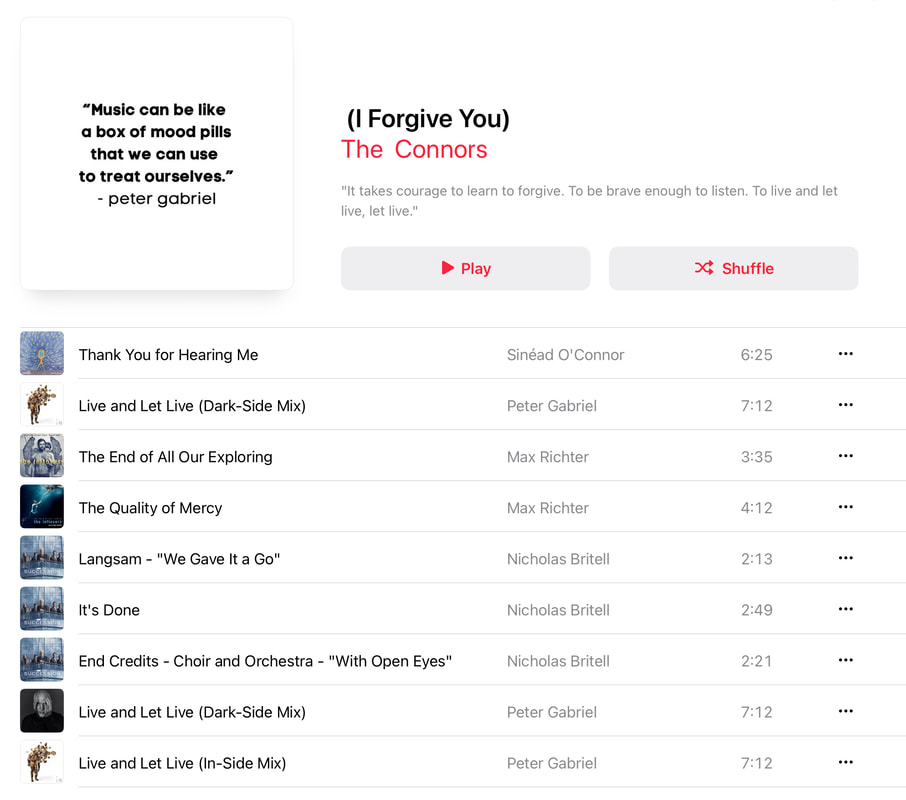
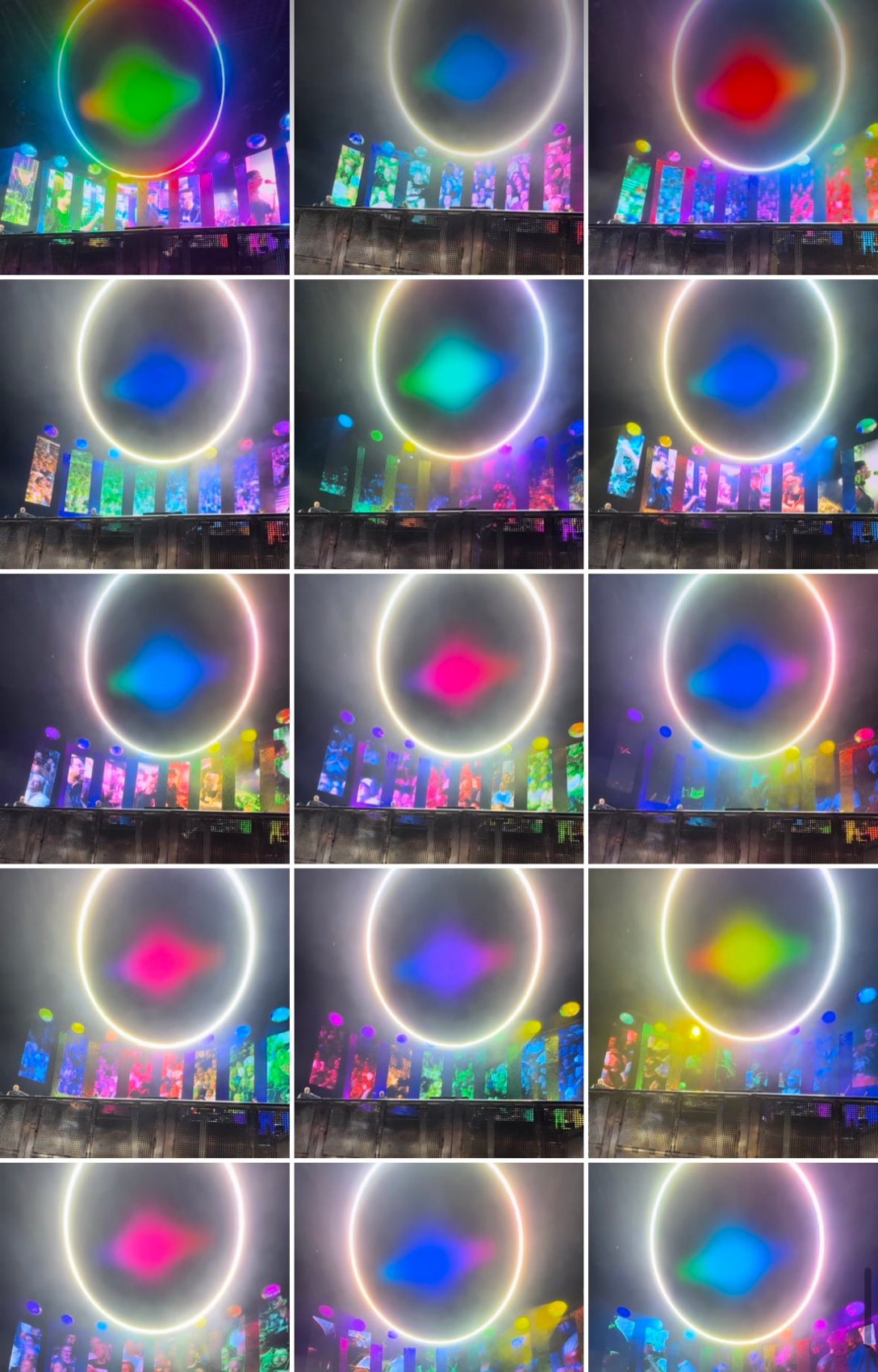
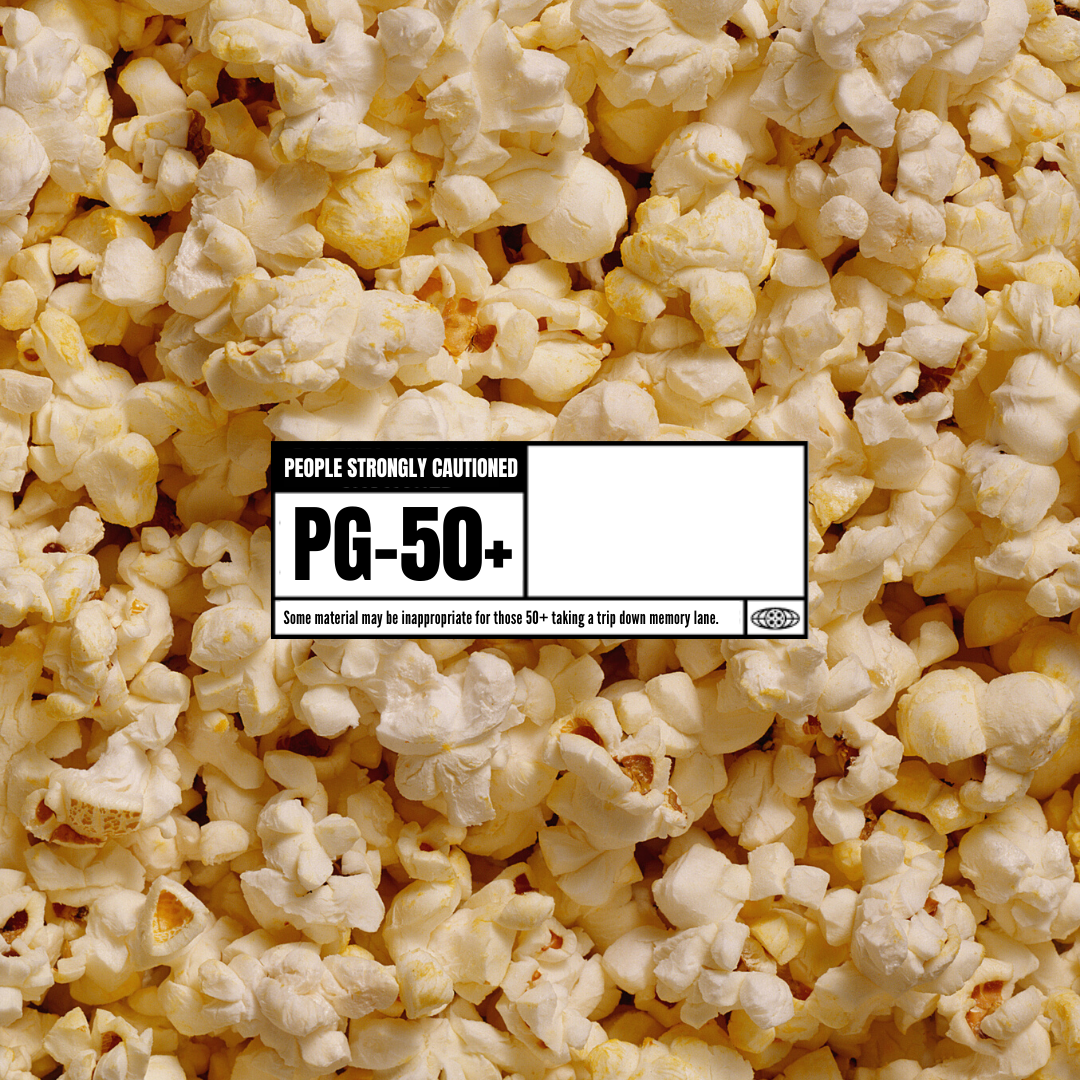
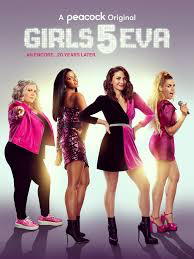
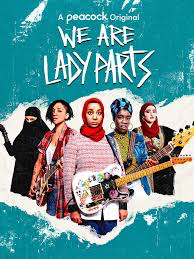
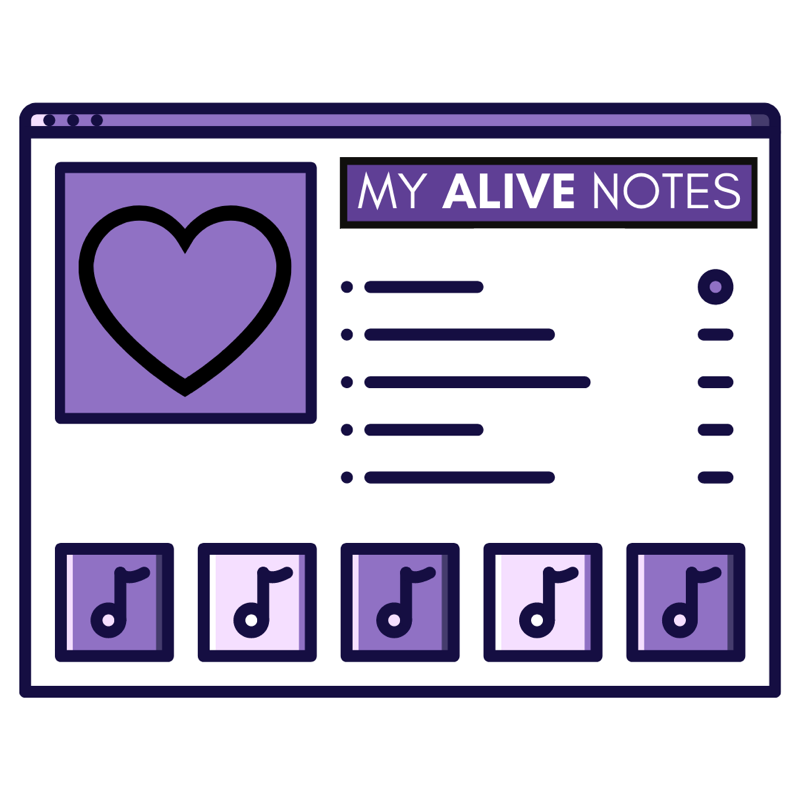

 RSS Feed
RSS Feed
